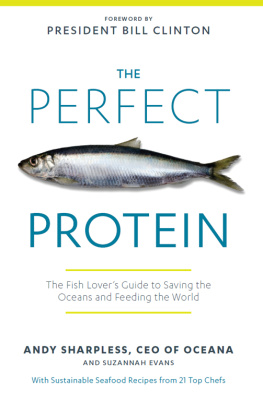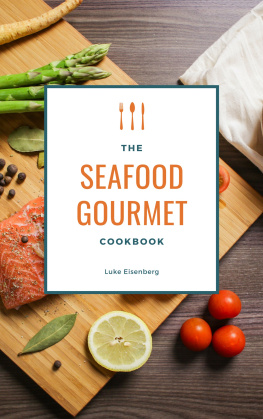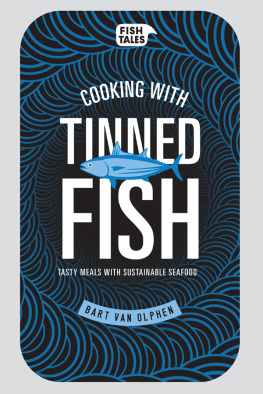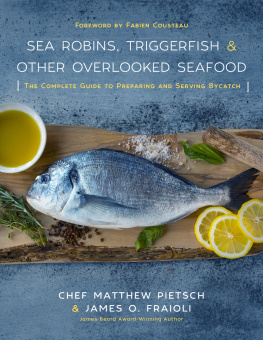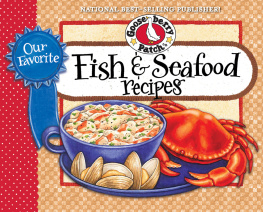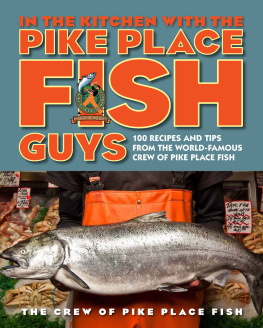
Mention of specific companies, organizations, or authorities in this book does not imply endorsement by the author or publisher, nor does mention of specific companies, organizations, or authorities imply that they endorse this book, its author, or the publisher.
Internet addresses and telephone numbers given in this book were accurate at the time it went to press.
2013 by Oceana
All rights reserved. No part of this publication may be reproduced or transmitted in any form or by any means, electronic or mechanical, including photocopying, recording, or any other information storage and retrieval system, without the written permission of the publisher.
Detailed permissions and copyright information for recipes contained herein may be found on .
Book design by Kara Plikaitis
Library of Congress Cataloging-in-Publication Data is on file with the publisher.
ISBN 9781609614997 hardcover
eISBN 9781609615000

We inspire and enable people to improve their lives and the world around them.
rodalebooks.com
For Beth
CONTENTS
FOREWORD
A MERICA IS BLESSED to have some of the worlds most important fisheries within our national ocean zone. Thats why, when I was president, I signed the Sustainable Fisheries Act into law, to help us to conserve as well as develop our fisheries. I embraced the goals of feeding people, maintaining the livelihoods of those who fish, and protecting the long-term abundance of the ocean. The law set up a system of management rules to make this happen by protecting our ocean habitat, limiting bycatch, and supporting scientific quotas. I consider it one of the top environmental achievements of my administration. It was one of the most successful environmental laws ever enacted, because it enabled the United States to become one of the first major fishing nations to make conservation a fundamental and effective part of the fisheries management process.
Enacting and implementing the law was a hard-fought, messy battle, one that continued in the courts for years after I signed it. It passed just a few years after the terrible collapse of cod in Canada and increasingly bad news about our own fisheries. My heart went out to the fishers and their families whose lives were wrenched by a rapidly declining catch. I was always impressed by those who supported conservation limits, despite the short-term impact on their livelihood, because they believed strongly that we needed to protect the future of fishing to save the way of life they love so much.
Their sacrifice paid off. Today, scientific reports show that Americas fisheries, once headed toward decline, are now headed toward recovery. The results show that scientific ocean management works. In fact, the caught in American waters label is becoming an excellent indicator of the seafood one can eat sustainably. I hope this story, and our law, will be a source of encouragement, and even inspiration, for people all over the world. Thats because most of the worlds fisheries are still in terrible shape, and too many countries, including some that control most of the fish caught, do not yet have the policies necessary to manage their fisheries sustainably.
This issue is profoundly important to our future. We must have effective scientific management of the worlds ocean fisheries, as this fine book points out, to provide the protein needed to feed a world population projected to reach 9 billion people by 2050.
The specter of ever-growing numbers of hungry people, especially malnourished children, hangs over our heads. Already, close to 1 billion people go to bed hungry. Through my Foundation, I work with farmers who cultivate small plots in developing countries to increase their production and their incomes. The results are impressive and, taken to scale, could do a lot to reduce hunger now and in the years ahead.
But well still need fish and their protein and other nutrients they provide to adequately deal with the challenge. Ive never heard anyone else propose the simple solution Andy Sharpless and Oceana are making here: to replicate the success weve had in the United States by putting in place effective, conservation-focused, scientific fisheries management in the 25 countries that control most of the worlds seafood catch. This isrelatively speakinga practical, inexpensive, and quick way to make sure our planet has lots more nutritious food in the future, when well really need it.
I urge you to give this book, especially Andy Sharplesss proposals, a close read. I think you will enjoy the storytelling and find his ideas thought-provoking. I also commend Oceana for advocating for the oceans as a food source for people as well as for ecological reasons, and I hope more in the environmental community follow their lead. To allow everyone to thrive, our future requires that we find ways to keep our natural systems strong and abundant.
Americas experience with ocean management proves that it does work. And I believe that, with proper enforcement, it will work in most countries. So I agree with Andy Sharpless: Lets save the oceans and feed the world.
President Bill Clinton

CHAPTER 1
A Short Natural History of Seafood
Fish, amphibian, and reptile, warm-blooded bird and mammaleach of us carries in our veins a salty stream in which the elements sodium, potassium, and calcium are combined in almost the same proportions as in sea water. This is our inheritance from the day, untold millions of years ago, when a remote ancestor, having progressed from the one-celled to the many-celled stage, first developed a circulatory system in which the fluid was merely the water of the sea.
R ACHEL C ARSON , T HE S EA A ROUND U S
I N THE SUMMER of 1935, the Inuit people of eastern Canadas remote Arctic inlets were still living a subsistence lifestyle. Clad in sealskin leather, they moved with the weather and the walruses, seals, and whales that they hunted. The only plants they ate were the blueberries that grew during 2 months of the year and sometimes the half-digested contents of caribou stomachs.
The fact that this nomadic hunter-trapper lifestyle persisted into the 20th century in one of the worlds harshest environments is incredible. Perhaps even more unfathomable is the notion that the Inuits restricted diet made them among the healthiest people in the world. But in the early 1930s, the Inuits had made contact with the modern world through the fur-trading Hudsons Bay Company, and the word was out that these tough Arctic people did not appear to suffer from diabetes, cancer, or arteriosclerosis.
Israel M. Rabinowitch, a chemist with McGill University, joined the Canadian governments annual supply trip to the Inuit communities in the summer of 1935 to find out if the stories about the hardy Inuits were true. Sailing aboard the HMS Nascopie, he traveled to four Arctic islandsSouthampton, Devon, Ellesmere, and Baffinand made dozens of visits to towns that were nothing more than temporary assemblages of a few sealskin tents.
In total, Rabinowitch examined 389 Inuits. While the population wasnt quite as disease free as reputation had it, they were remarkably healthy. He found no diabetes. Only one possible case of cancer. A few calcified arteries. Teeth worn down by chewing leather to make clothes and tents. If there was a serious health problem amongst the Eskimos, [I] was not aware of it, Rabinowitch noted in a report published in the

